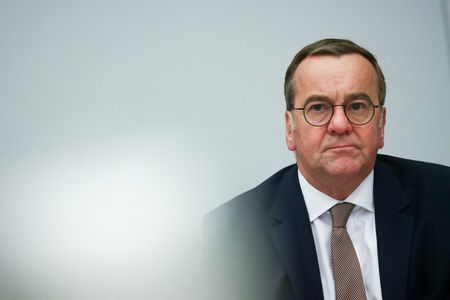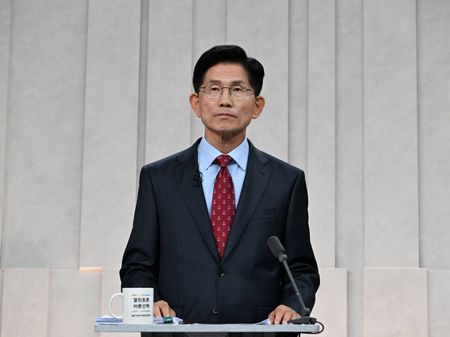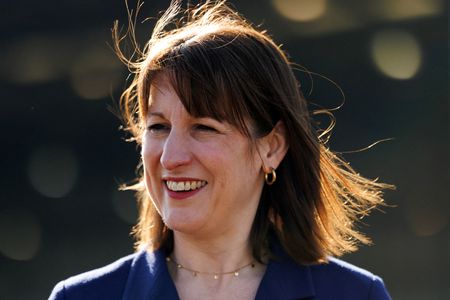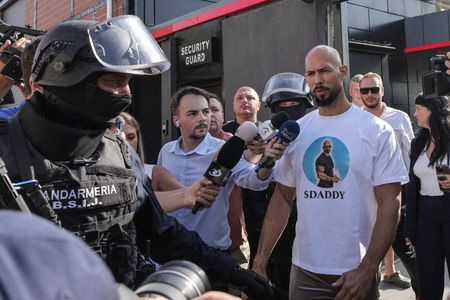BERLIN (Reuters) – Germany’s defence minister said it was a mistake for U.S. President Donald Trump to take the bargaining chips of Ukrainian NATO membership and territorial concessions off the table ahead of possible talks to end Russia’s war with Ukraine.
Speaking on his arrival at the Munich Security Conference on Friday, Boris Pistorius said that Russian President Vladimir Putin had “not budged an inch” on his negotiating position so it was not in the other side’s interests to do so.
“I think that was clumsy. I think that was a mistake,” he said of the position of Trump and his defense secretary. “It would have been much better to talk about possible NATO membership and territorial changes at the negotiating table.”
If European countries were to be involved in upholding any kind of Ukraine-Russia peace deal, they will have to be involved in negotiating it, Pistorius said, speaking two days after Trump had a call on Ukraine with Putin without notifying Washington’s NATO allies or Ukraine in advance.
He also said that for the coming years, Europe would not be in a position to guarantee a peace accord on its own without U.S. support.
For that reason, he said, it was essential to reform both the European Union’s Maastricht debt criteria and Germany’s own debt brake to make it easier for European NATO members to spend more on defence, as the Trump administration is demanding.
“Nobody can believe any longer than 2% is enough,” he said, referring to NATO’s target of 2% of GDP on military spending for its members. Trump has called on European allies to crank up defence spending to up to 5% of GDP.
It was reasonable, Pistorius said, for the U.S. to want to reorient its security focus towards the Indo-Pacific region and spend less on Europe’s defence, but for this, there had to be a roadmap for a gradual transition. On this, U.S. Defense Secretary Pete Hegseth had agreed with him, Pistorius said.
In his overseas debut after taking charge of the Pentagon on Jan. 24, Hegseth raised an uproar in Europe in announcing on Wednesday that a return to Ukraine’s borders of 2014, when Russia seized and annexed Crimea, was unrealistic and that Washington does not see NATO membership for Kyiv as part of a solution to the war triggered by Russia’s 2022 invasion.
Hegseth’s critics say the remarks amounted to the U.S. ceding leverage in negotiations with Russia before they even started, in what they described as a major victory for Putin, whose force now control 20% of Ukraine.
On Thursday, Hegseth appeared to backtrack on his own remarks, telling a press conference that “everything is on the table” for Ukraine war negotiations and that it was up to Trump to decide what concessions will be made.
Also on Thursday, a senior U.S. foreign policy official said the United States had not ruled out potential NATO membership for Ukraine or a negotiated return to pre-2014 borders, contradicting the earlier comments.
(Reporting by Thomas Escritt; editing by Thomas Seythal and Mark Heinrich)










